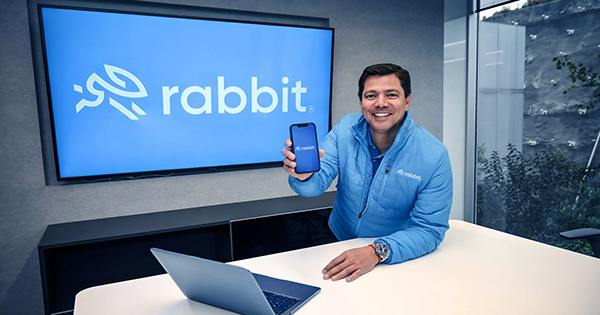The on-demand food and convenience delivery mania that has swept Europe and the United States in recent months is gradually spreading to Africa and the Middle East. RabbitMart, or Rabbit for short, is a firm that has emerged from stealth with $11 million in pre-seed capital. Rabbit is the latest in a long line of businesses that investors are ready to invest in to deliver groceries and other products from neighborhood fulfillment centers to people’s homes in less than 20 minutes. Rabbit is a pioneer in Egypt and Africa, alongside Breadfast, which recently stated that it would begin completing deliveries in less than 20 minutes.
Global Founders Capital, Raed Ventures, Foundation Venture, MSA Capital, and Goodwater Capital, all located in San Francisco, took part in the pre-seed round, which set a new record for its stage in Africa and the Middle East, exceeding Egyptian fintech Telda’s $5 million. Rabbit formed in June Ahmad Yousry, Walid Shabana, Ismail Hafez, and Tarek El Geresy. In an interview with TechCrunch, CEO Yousry explained that the founders first discussed the notion of duplicating rapid delivery methods in Egypt when he saw a pattern of late and unsuccessful deliveries whenever he purchased goods.
“You place an order, but you’re not sure if it’ll arrive or if it’ll be out of stock,” he explained. “You’re not sure if it’ll be delivered in its whole or if it’ll be delivered on time or late.” You have no idea what you’re going to get.”
Groceries are products that people forget to buy and stress about when they suddenly need them, which is why most European on-demand services, such as Get and Gorillas, debuted initially in that sector. However, they discovered over time that on-demand retail — providing additional things that an impulsive consumer would want in a supermarket, for example — was a larger market and potential. Yousry and his co-founders investigated use cases where individuals bought things from e-commerce platforms but had to wait days for them to arrive, and they opted on basic apparel, cosmetics, toys, and home products as their focus. “We’re going to let the market define what we offer less than 20 minutes, whatever the consumer wants.” He distinguished the startup from existing grocery delivery platforms in Egypt, such as GoodsMart and Appetito, by saying, “We’re not restricting ourselves as a grocery player.”
Rabbit works in a similar way to other worldwide on-demand convenience delivery firms. It has broken down the Amazon concept of large-scale storage into little parts — micro-fulfillment centers — in four Cairo neighborhoods: Mohandeseen, Zamalek, Maadi, and Nasr City. Rabbit buys these five types of things from third-party suppliers, holds them in its warehouses, adds a markup, and sells them through an app with a fixed delivery price for clients.
According to the firm, it has complete control over the end-to-end experience on its platform. It employs a live inventory tracking system in its warehouses to keep track of what’s on the shelf and equips riders — some paid, some self-employed — with the safety clothing and technology they need to make deliveries. The six-month-old company intends to open a new fulfillment center every other week until the end of the year, covering many major cities in the process.
Rabbit has been under the radar since June and only recently released. In the first two days, around 30% of orders were delivered in less than 20 minutes; by the third day, that percentage had risen to 90%.
“The way we see it, it’s a no-brainer.” If McDonald’s can deliver sandwiches in 30 minutes while still having to cook the meal, we can certainly deliver in 20 minutes if we do things right.” Many articles reporting the on-demand convenience delivery mania have inquired as to whether these businesses can meet their delivery deadlines without damaging their passengers’ trust.
It is a dilemma Gorillas has had to deal with this year; in an effort to complete deliveries in less than 10 minutes, some drivers have protested, requesting better working conditions.
















